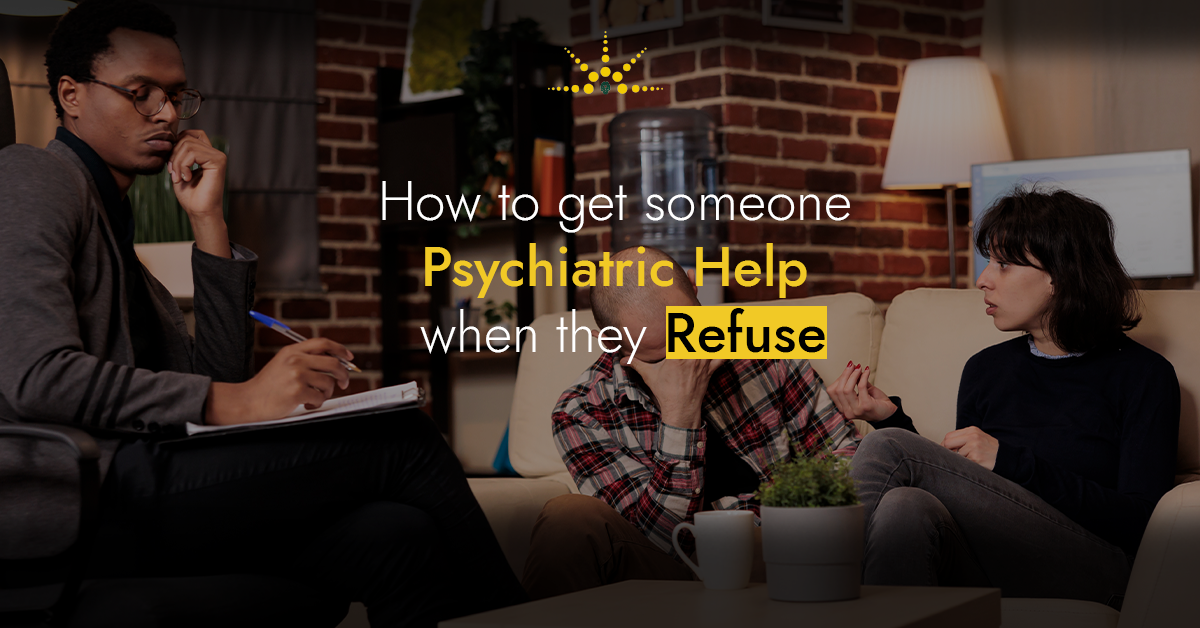Mental health issues are common worldwide. Many will face such a condition at some point.
Many seek support for mental health struggles, but some resist. Their reasons differ. Some accept help, while others refuse it. Motivations vary, affecting the journey to wellness or ongoing challenges.
Watching a loved one with untreated mental health issues is confusing. Their refusal to seek help increases the difficulty. This leaves you in a sea of worry and doubt.
Read on to learn how to tell someone they need help.
Are you looking for professionals for your loved ones’ mental health? Dr. Davidson at Safestar Psychiatric and Wellness LLC provides mental health care.
She treats depression, anxiety, ADHD, and more. The provider will treat the patients with therapy, medication, and lifestyle changes.
How to Explain Mental Illness to Someone Who Doesn’t Understand
Be kind and respectful when talking to someone with a mental health issue who doesn’t want to care. They have a mental health condition. They might hesitate to seek treatment. Avoid blame or shame. Instead, consider these tips.
-
Listen and Build Trust
Ask your loved one about treatment and listen to their feelings. Let them explain their reasons without interrupting.
-
Be Understanding
Understand your loved one’s perspective, even if you disagree. Reflect on what they say to clarify. Confirm their concerns and suggest therapy might help. “It can be tough at first, but most find it helps in the long run.”
-
Educate Yourself
Understanding a loved one’s mental health struggles can be tough without personal experience. The National Institute of Mental Health, NAMI, and Mental Health America have insights to help you understand and support them.
-
Ask How You Can Help
Ask your loved one how you can help. They may prefer help with chores over treatment. Take their requests seriously, even if they start small.
-
Give Options
Help your loved one by offering to find a therapist, psychiatrist, or support group. You could also assist with childcare and household tasks like cooking and cleaning. Consider providing financial help for treatment if possible. Remember to respect your limits. Avoid taking on tasks that aren’t yours.
-
Start Small
Helping a loved one with a mental health condition takes time. Start small and be patient. Every effort, no matter how small, is progress.
-
Remain Open
Talking openly keeps hope alive. Yet, staying connected to a struggling loved one keeps treatment options open. Balance respecting their space and offering support. Your steady presence might lead them to seek help when they’re ready.
Wrapping Up
How to get someone psychiatric help when they refuse?
When your loved ones say I am not sick, I do not need help.
It can be tough when helping someone who refuses psychiatric help. But patience and understanding are key.
Mental health family support, listen and stay open to communicate. This will guide your loved one to help when they are ready. Even small steps make a difference in showing them that they are not alone.
FAQs
How to convince someone with BPD to get help?
Provide ongoing support. This includes listening, comforting, and helping them get help. Validate their experience and distress. Tell them you know that, for them, the experience is real. If you think you understand why they feel the way they do, tell them this.
What is long-term care for mental health patients?
Long-term mental health care requires a team approach. It combines medical treatment, therapy, and community resources. This improves mental health and well-being. With support, many patients thrive and lead fulfilling lives.







No comment